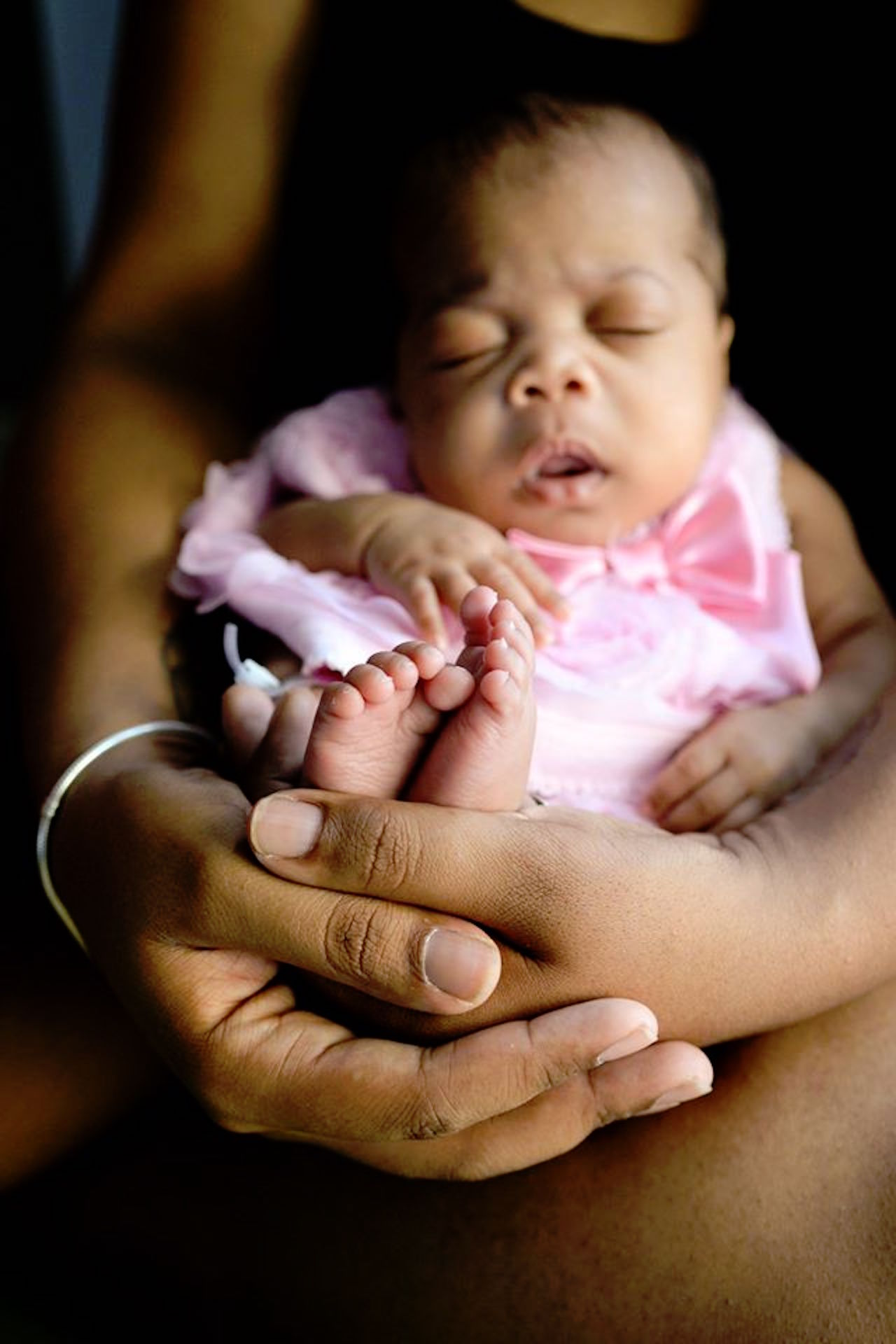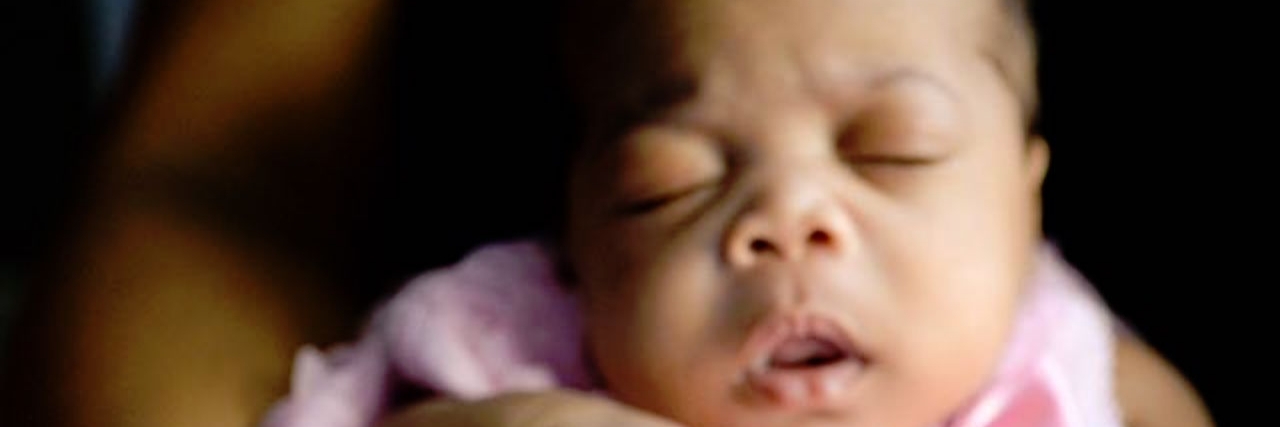“Black women don’t get depressed” was a mantra I’d grown up hearing all my life. In my family, we are allowed to give ourselves a few days to have a “pity party,” but then you are expected to get up and carry on…business as usual.
Well, in May of 2014, I gave birth to a 31-week premature daughter, Violet-Hazel, due to preeclampsia. A few days after her birth, she was diagnosed with necrotizing entercolitis (NEC) and given a 40-percent chance to live. I suddenly found myself having to balance my own recovery with spending nearly 12 hours a day in the NICU with my 8-year-old daughter in tow and caring for a sick preemie. I ultimately developed generalized anxiety disorder (GAD), post-traumatic stress disorder (PTSD) and postpartum depression (PPD). Through medication, prayer and counseling, I learned to work through my anxiety and depression.

There are days when I feel like my heart is still in NICU even though my daughter has been home nearly two years. There are days when a sound or a scent will remind me of our NICU neighbor, Tyler, who passed away while we were there. There are days when Hazy sleeps too long and I wonder if she’s stopped breathing again. I can’t control those reminders, but I can try to control my responses to them.
Black women are expected to be strong, no matter the circumstance. In our community, we are expected to carry stress, balance our families and careers, and not bat an eye. We are told to pray and to trust God.
I found that in pretending I was OK, I was actually denying myself much needed help. A part of trusting God was understanding I needed to take care of myself physically, mentally and emotionally. I thank God every day that my OB recognized my cries for help. There are still days those things linger and I have to rely on mindfulness activities and breathing activities to center me.
If you find you are in a similar situation, don’t hesitate to get help. The true test of strength is how you handle yourself in times of sorrow. There is no shame in admitting you’ve reached your limit.

